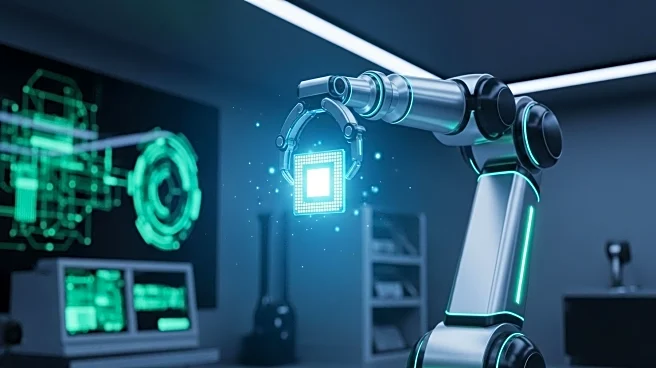What's Happening?
Nvidia CEO Jensen Huang has expressed skepticism about the notion that AI and robotics will lead to increased leisure time for humans. Contrary to claims by figures like Elon Musk, Huang believes that advancements in AI will result in humans being busier than ever. During an appearance on Fox Business, Huang discussed the future of robotics and AI, suggesting that these technologies will permeate various sectors, including healthcare, manufacturing, and agriculture. He anticipates that every industrial company will integrate AI and robotics into their operations, leading to increased productivity and economic growth. Despite the potential for a shorter workweek, Huang expects that humans will have more work due to the efficiency gains from AI, as new ideas and opportunities will arise.
Why It's Important?
The implications of Huang's predictions are significant for the U.S. economy and workforce. If AI leads to increased productivity, it could drive economic growth and create new job opportunities. However, it also suggests that workers may need to adapt to new roles and skills as AI changes the nature of work. This could impact public policy, particularly in areas related to education and workforce development, as the government may need to support retraining programs. Additionally, the integration of AI into various industries could lead to shifts in labor demand, potentially affecting employment rates and wage structures.
What's Next?
As AI technology continues to evolve, companies and policymakers will need to address the challenges and opportunities it presents. Businesses may need to invest in AI infrastructure and training to remain competitive, while policymakers might consider regulations to ensure ethical AI use and support for displaced workers. The potential for a four-day workweek could also spark discussions on work-life balance and labor laws. Stakeholders, including industry leaders and government officials, will likely engage in ongoing debates about the future of work and the role of AI in society.
Beyond the Headlines
The broader cultural and ethical implications of AI's impact on work are worth considering. As AI systems become more integrated into daily life, questions about privacy, autonomy, and the human-machine relationship may arise. The shift towards increased automation could also influence societal values, such as the importance of human labor and creativity. Long-term, these developments could lead to a reevaluation of economic models and social structures, as AI reshapes the way people live and work.










